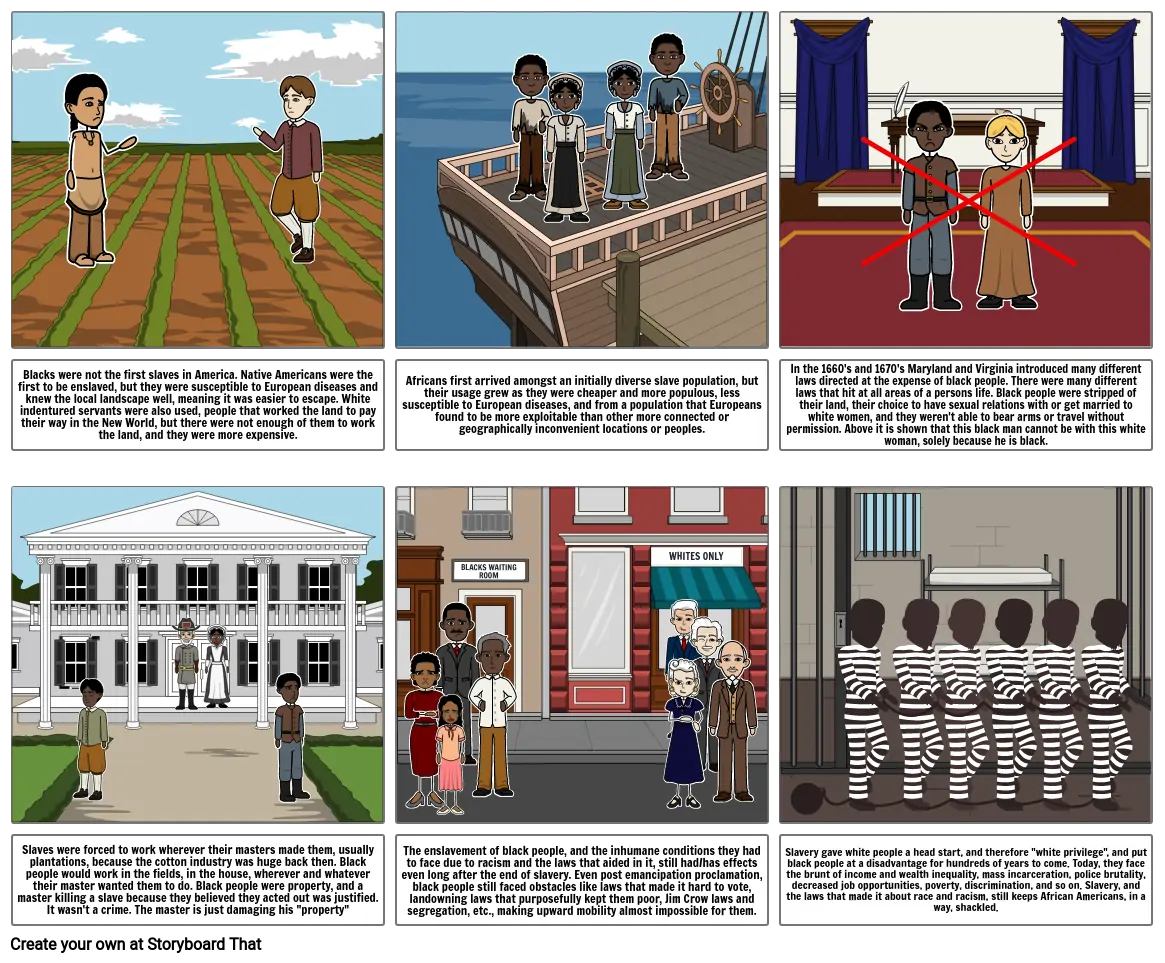Chattel Slavery

Storyboard Tekst
- Blacks were not the first slaves in America. Native Americans were the first to be enslaved, but they were susceptible to European diseases and knew the local landscape well, meaning it was easier to escape. White indentured servants were also used, people that worked the land to pay their way in the New World, but there were not enough of them to work the land, and they were more expensive.
- Africans first arrived amongst an initially diverse slave population, but their usage grew as they were cheaper and more populous, less susceptible to European diseases, and from a population that Europeans found to be more exploitable than other more connected or geographically inconvenient locations or peoples.
- BLACKS WAITING ROOM
- WHITES ONLY
- In the 1660's and 1670's Maryland and Virginia introduced many different laws directed at the expense of black people. There were many different laws that hit at all areas of a persons life. Black people were stripped of their land, their choice to have sexual relations with or get married to white women, and they weren't able to bear arms or travel without permission. Above it is shown that this black man cannot be with this white woman, solely because he is black.
- Slaves were forced to work wherever their masters made them, usually plantations, because the cotton industry was huge back then. Black people would work in the fields, in the house, wherever and whatever their master wanted them to do. Black people were property, and a master killing a slave because they believed they acted out was justified. It wasn't a crime. The master is just damaging his "property"
- The enslavement of black people, and the inhumane conditions they had to face due to racism and the laws that aided in it, still had/has effects even long after the end of slavery. Even post emancipation proclamation, black people still faced obstacles like laws that made it hard to vote, landowning laws that purposefully kept them poor, Jim Crow laws and segregation, etc., making upward mobility almost impossible for them.
- Slavery gave white people a head start, and therefore "white privilege", and put black people at a disadvantage for hundreds of years to come. Today, they face the brunt of income and wealth inequality, mass incarceration, police brutality, decreased job opportunities, poverty, discrimination, and so on. Slavery, and the laws that made it about race and racism, still keeps African Americans, in a way, shackled.
Over 30 millioner Storyboards oprettet

